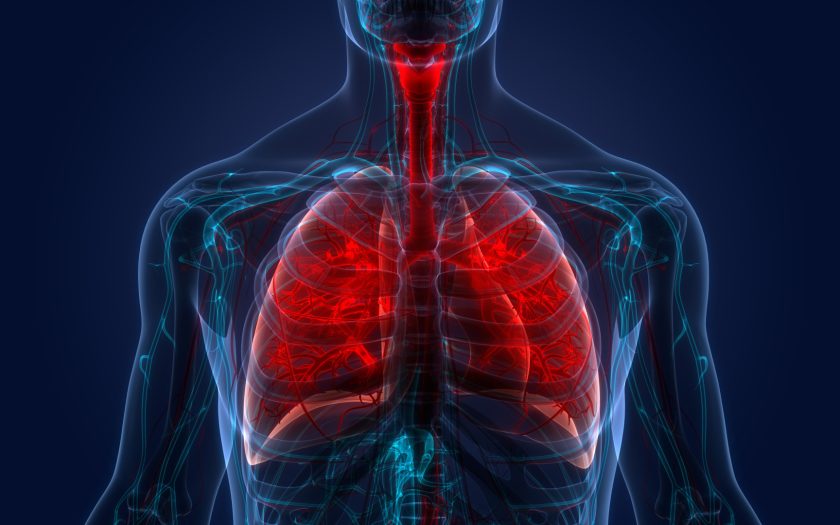-
Frequent feeling of fatigue.
Frequent fatigue may not only be a result of a busy schedule or lack of sleep. In some cases, it’s a warning sign that the lungs are not functioning at full capacity. When they are not supplying the body with enough oxygen, the body begins to become quickly exhausted. A person may experience a loss of energy and significant fatigue even after performing normal daily activities, such as cleaning or walking. You should pay particular attention if fatigue is accompanied by an unpleasant feeling in the chest or the need to take frequent breaks. This can be a symptom of conditions such as asthma or underlying lung problems. Therefore, it is important not to ignore this condition and, if necessary, consult a doctor for an examination.
-
Chest pain when breathing or coughing.
One of the alarming signals that deserves special attention is chest pain that occurs during deep inhalation, exhalation, or coughing. This symptom may indicate an inflammatory process in the lungs or the pleura — the thin membrane that surrounds the lungs. For example, pleuritis, pneumonia, or even pulmonary embolism are often accompanied by pain that intensifies with breathing movements. This pain can vary in nature — from sharp or burning to deep and aching — but in any case, it signals that the body is alerting you to a problem that should not be ignored. If this symptom is accompanied by shortness of breath or fever, this is a serious signal that requires an immediate consultation with a doctor. Timely diagnosis can help detect the issue at an early stage and prevent complications.
-
Loss of appetite and unexplained weight loss.
It’s not just a matter of changing eating habits or stress: if a person eats habitually, but their weight decreases, and they are no longer interested in food, the body may signal serious internal changes. In most cases, this situation is commonly observed during the development of COPD (Chronic Obstructive Pulmonary Disease). A person feels fatigued, food no longer brings pleasure, and the interest in eating disappears, resulting in gradual weight loss. For example, if you’ve lost 4–5 kg in the last month without any changes in your lifestyle or diet, it’s a serious reason to consider and consult a doctor, especially if other symptoms are present.
-
Thickening of nail phalanges.
Thickening of the nail phalanges is a subtle but significant sign that something may be wrong with the lungs. This change in the appearance of the fingers typically occurs gradually: the tips of the fingers become rounded, the nails seem to flatten or curve downward, losing their natural shape. This symptom can be associated with chronic oxygen deficiency in the body, which often occurs with serious lung diseases. Due to poor oxygenation, tissues try to compensate for this deficiency, and one of the results of this process is thickening of the soft tissues on the phalanges. Visually, it looks as if the fingers have slightly swollen, and the nails have become more convex. Often, people do not even pay attention to this change, considering it an individual peculiarity. But if this symptom has appeared recently, it definitely requires the attention of a doctor.
-
Increased night sweating.
If you often wake up at night with wet clothes, a damp pillow, or sheets, and it’s not related to the room temperature or hormonal changes, it’s worth paying attention to the condition of your respiratory system. Night sweats can be a symptom of an infectious process in the lungs. In this case, the body is trying to fight off the inflammation, which leads to increased sweating, especially at night—when all processes in the body slow down and any disturbance becomes more noticeable. This symptom is often accompanied by dry or wet coughing, general weakness, loss of appetite, and weight loss. Although increased sweating can have many causes (stress, hormones, medications), when combined with other signs of respiratory disorders, it requires medical attention. Do not ignore the signals your body sends, even at night—they can be key to early diagnosis of a serious condition.
If you notice one or more of the symptoms listed above, do not delay seeking medical advice. Healthcare professional can accurately diagnose your condition and prescribe effective treatment tailored to your needs. For example, in cases where chronic obstructive pulmonary disease (COPD) is diagnosed, bronchodilator medications such as Salbetol-2, Asthalin, or ALUPENT-10 should be prescribed to ease breathing and reduce symptoms. Remember, timely medical intervention is key to preserving your health and maintaining a good quality of life.

